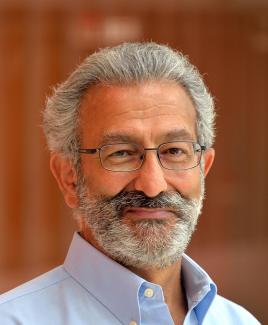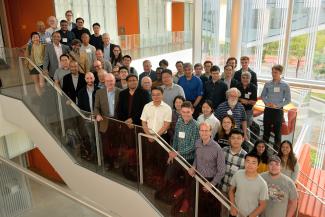News
Dark Energy Survey uncovers clues to universe’s complexity
In 1998, astronomers discovered that the universe is expanding at an accelerating rate, thanks to a mysterious force called dark energy that makes up about 70% of the universe. The discovery came as a surprise as it countered the prevailing notion that the universe’s expansion should be slowing down because of gravity.
MARK DEVLIN AND COLLEAGUES AWARDED NSF GRANT TO UPGRADE PROMINENT OBSERVATORY
The Reese W. Flower Professor of Astronomy and Astrophysics will oversee state-of-the-art improvements to the Simons Observatory.
Is Cosmology Broken? This Map May Be a Crucial Puzzle Piece
Penn Professor, Mathew Madhavacheril works with the Atacama Cosmology Telescope, which could help resolve some cosmic discrepancies: How fast the universe is expanding and how evenly matter is distributed.

Congratulations to Mirjam Cvetic on her election to the American Academy of Arts and Sciences!
Her 2023 election in Class I (Mathematical and Physical Sciences), Section 2 (Physics) recognizes Mirjam’s stellar career and exemplary contributions to physics! Congratulations, Mirjam!
https://penntoday.upenn.edu/news/five-penn-elected-american-academy-arts-and-sciences-2023

Congratulations to Nader Engheta on his election into the American Academy of Arts and Sciences!
His election is in (Class I – Mathematics and Physical Sciences, Section 5 – Engineering and Technology).
Nader’s primary Penn appointment is Professor in Electrical and Systems Engineering, and he has a secondary appointment as Professor in our department. Congratulations Nader!
https://penntoday.upenn.edu/news/five-penn-elected-american-academy-arts-and-sciences-2023
New findings reveal the most detailed mass map of dark matter
Research led by the Atacama Cosmology Telescope collaboration maps the universe’s cosmic growth supporting Einstein's theory of general relativity.

